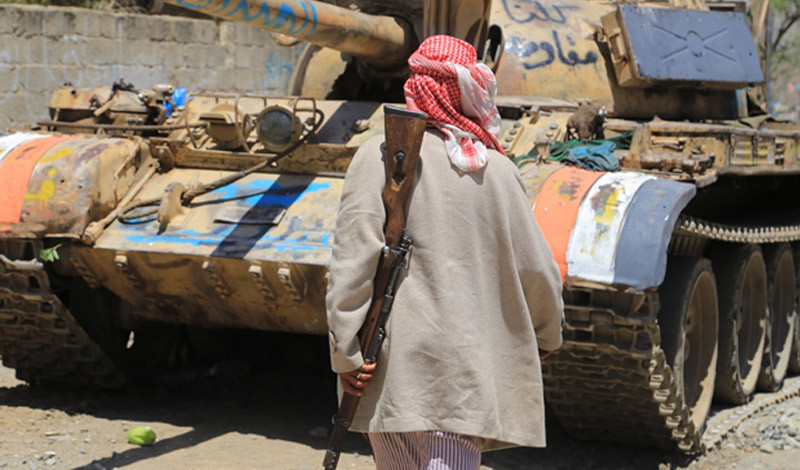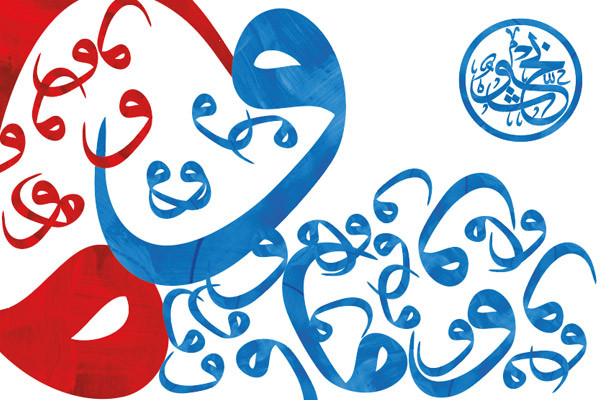War economy won`t take the Houthis far
They are clever at pointing flaws and have been making the legitimate government look like an enemy.

- by Dr. Haifa AlMaashi ,
- Monday, 15th January, 2018
To understand the limits of the Houthis influence in Yemen, it is important to have an idea about the ground realities in Sana'a, the capital controlled by the militant group. It must be understood here that military campaigns for an indefinite period of time are not solutions for Yemen's legitimate government or the Arab coalition. Something will give way, and the Houthi rebels will eventually fall under the weight of their contradictions.
To defeat the enemy, you must read him well. This ancient advice from Sun Tzu in The Art of War not only applies to the military sphere but also to Yemen's social system in general. It requires an understanding of the country's culture, the economy, the social fabric, political and tribal differences. Will the Houthis change tactics after the death of former ally President Ali Abdallah Saleh? Saleh's party, the General People Congress, dominated the Yemen political system for decades, from 1997 to 2011.
The Yemen war has evolved as the source of the Houthis' livelihood. It's a war economy they thrive on. In order to continue the fighting, the group has to convince the Yemenis that the war is necessary. They are clever at pointing flaws and have been making the legitimate government look like an enemy.
Most of the Yemenis are disgruntled by the miserable conditions inside the country. The list is long - from salary cuts to the interruption of electricity and water, and the spread of epidemics. All these grievances have made the government lose its credibility among the people.
Moreover, the Houthis are focused on Saudi Arabia as their main enemy in an attempt to transform the conflict from a Yemeni-Yemeni conflict into a Yemeni-Saudi conflict to convince the people that their enemy is outside the country.
During their alliance with Saleh, they were able to garner political support and mobilise large crowds. But Saleh's death has dented that appeal. The absence of Saleh from the political arena may give way to the emergence of a new leader - which the Houthis might not allow. They will do their best to eliminate the remnants of Saleh's party and destroy the social and political clout of the many tribes.
A decline in tribal strength will surely aid the Houthis in Sana'a. Multiple loyalties - regional, sectarian and political - make it easy for them. They will seek to impose a new social order that glorifies the imamate system that was governed by one class (Al Sada).
It makes us wonder if Yemen would return to the era of the imamate and announce the end of the republic? The group is doing its best to convince the Yemeni people of the so-called internal and the external threat. Some Yemeni elements are collaborating with the Houthis, and it may be a tough fight for the coalition in Sana'a, which the group controls.
They have held the capital since September 21, 2014, but the big question is for how long? As for the central regions, especially Taiz and Ibb, they are under the influence of multiple political forces from the North and the South.
The Houthis will continue to adopt their foggy plans without a clear strategy.
Their hit-and-run approach to military or political negotiations will not get them far. They might have control of the capital, but it will be difficult to manage political and social divisions, and the people could turn against them. When that happens, they will have to retreat to Saada, their stronghold.

Dr. Haifa AlMaashi
Director of the Geo-strategic Studies Division (former)
Read More
Areas of Expertise
- Policy analysis
- Media writing
- Qualitative research
- lecturing
Education
- PHD in Mass Communication, University of Cairo, Faculty of Mass Communication, Egypt. 2004
- Master’s in journalism, University of Colorado Faculty of Journalism, Boulder, USA.1990
- Bachelor of Political Science, University of Kuwait Faculty of Economic and Political Science, Kuwait. 1989
Bio
Haifa Ahmad Al Maashi works as the director of geo-strategic studies division at Dubai Consultancy Research and media Center. She obtains a PhD in journalism from the University of Cairo- Faculty of media (2004) First class honors, has a master`s degree in journalism from the University of Colorado - Boulder in the United States (1990) and a BA in Political Science from the University of Kuwait 1989. She is specializing in the field of political media and has worked as an assistant professor at the University of Aden 1991-2010,( Journalism and Media department). Has several published lectures in the field of media and political development, the role of media in social change, communication theories and the new media (2004). Also has articles published in several newspapers and websites. Her main concern focuses on the detection and analysis of political crises around the world and examine its implications on the reality of the region politically and economically.

